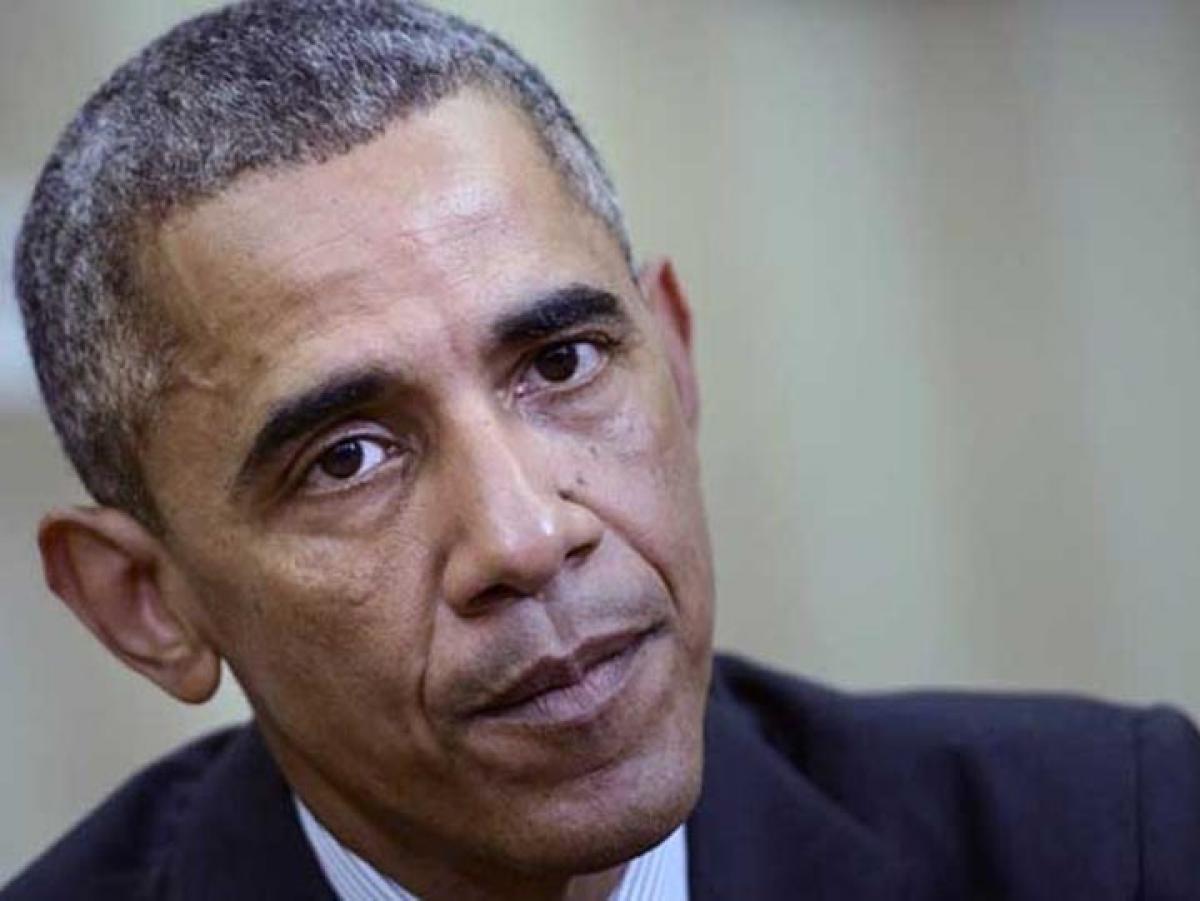Live
- G20 Leaders Will Talk About Climate, Taxes, and Trump's Return in Brazil
- COP29: CDRI announces $8 million funding for 12 projects to address climate crisis
- Anti-Telgu remarks: Actor Kasthuri Shankar moves court for bail
- Samsung AR Smart Glasses Set to Launch in 2025, Featuring Ray-Ban Meta-Like Design
- Kerala Industries Minister confident that new policy will boost plantation sector
- Madras HC plans inter-departmental monitoring committee to combat drug use in TN
- Bihar: Spotted deer dies due to heart attack in Banka district
- Mushtaq Ali T20: Shami to spearhead Bengal bowling attack, Gharami named captain
- Kharge's clarion call to oust Maharashtra's BJP-backed MahaYuti
- Why Ukraine’s Use of US Missiles Against Russia Could Lead to World War 3
Just In

x
Highlights
President Barack Obama has authorized the first sustained deployment of special forces to Syria, the White House said Friday, reversing a long-standing refusal to put US boots on the ground.
President Barack Obama has authorized the first sustained deployment of special forces to Syria, the White House said Friday, reversing a long-standing refusal to put US boots on the ground.

Obama okayed a deployment of "fewer than 50" special operations personnel in the north of the war-ravaged nation, in a bid to strengthen forces fighting the Islamic State group, spokesman Josh Earnest said.
While US fighters are believed to have previously carried out covert missions in Syria -- they had not been deployed there on a continuous basis.
For over a year, the US has led a 65-member coalition that has conducted air strikes against more than 13,000 Islamic State targets in Iraq and Syria.
But that has had only a limited impact in stopping the jihadi advance.
Efforts in Syria have been plagued by the complexities of a civil war that has killed more than 240,000 people since March 2011 and prompted the most serious refugee crisis since World War II.
Obama has been reluctant to involve the United States in another ground war in the Middle East, backing opposition groups that are an uneasy mix of Kurds, Turkomen, Shiite and Sunni Arabs.
Many have proven keener to fight Syrian President Bashar al-Assad than the Islamic State.
Obama was recently forced to scrap a half billion dollar mission to train Syrian opposition fighters, who had come under sustained attack from Assad's forces, IS fighters, Iranian-backed Hezbollah, groups linked to Al-Qaeda, and, more recently, Russian air strikes.
"The point is to get some guys on the ground, get eyes on, work with units that are there fighting (Islamic State) and see what more is possible," said one official.
The source also said that weapons would not go to the Kurdish People's Protection Units, known as the YPG, who have recently been accused of war crimes by Amnesty International.
Mission creep?
The White House denied the move was a reversal of Obama's pledge not to put combat troops in Syria, saying Americans would not be "leading the charge up the hill."
"Our strategy in Syria hasn't changed," said Earnest, rejecting accusations of "mission creep."
But a senior US defense official seemed to leave open the possibility of an increased US ground presence.
"As we develop new opportunities to support capable and local forces, we will consider those, we will make recommendations to the President," the official said on condition of anonymity.
"He's given every indication of his willingness to consider recommendations provided they are consistent with the strategy of achieving a victory that sticks."
Obama came to office vowing to end two wars in Muslim nations that had cost thousands of US lives, sapped the coffers and done little to advance US interests in the region.
Officials indicated the new mission would echo existing operations in Iraq, where military personnel coordinate local ground forces, channel weapons supplies and direct air support.
But in Iraq, the line between combat and non-combat troops has been hazy.
US forces took part in a recent raid on a jihadist-run prison in northern Iraq, resulting in the first death of a US serviceman in action in Iraq since 2011.
Experts said the US announcement could foreshadow an assault on the Islamic State group's bases in Raqa in Syria and Ramadi in Iraq.
The White House also announced Friday the deployment of A-10 ground-attack planes and a dozen F-15 tactical fighter jets to the Incirlik base in southern Turkey and increased assistance to Lebanon and Jordan as part of the ramped up effort.
"It's not clear that this will be enough to take Raqa," said Faysal Itani of the Atlantic Council.
"However, it could help attract local recruits to what will be seen as an empowered effort, and perhaps help build some trust between Kurdish and Arab forces."

Next Story
More Stories
ADVERTISEMENT
© 2024 Hyderabad Media House Limited/The Hans India. All rights reserved. Powered by hocalwire.com







